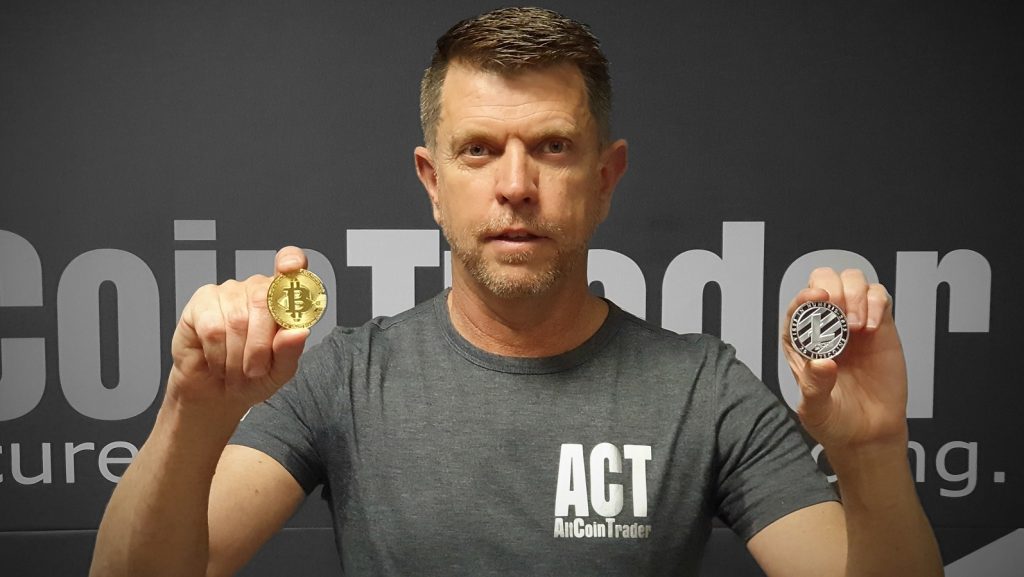SA cryptocurrency exchange AltCoinTrader has announced that it will next month allow users to trade in one-ounce gold and silver coins using its platform.
This, despite its founder Richard de Sousa (pictured above) yesterday admitting to Ventureburn that it’s unclear whether trade in non-Krugerrand gold as well as trade in silver, is legal in South Africa or not.
No ad to show here.
The announcement comes after Pretoria startup Troy Gold earlier this month revealed that it plans to offer gold bullion trading to clients by the beginning of next year (see this story).
SA crypto exchange AltCoinTrader will next month allow users to trade in one-ounce gold and silver coins. But is it all legal?
In a statement earlier this month, Johannesburg based AltCoinTrader, which was founded in 2015 by De Sousa, said the offering will commence on 5 August and will include allowing users the ability to buy Krugerrands with cryptocurrency.
Users will (just like Troy Gold currently offers) will be able to buy as little as one hundredth of a Krugerrand (currently valued at about R20 000).
AltCoinTrader said it had entered into an agreement with a number of retail commodity merchants around the country to back each unit of gold and silver traded on their platform.
Any user who wants to withdraw their purchased gold or silver, to do so by creating a withdrawal request, and either have their assets delivered to them by secure courier, or collect it from a nearby retail partner.
All gold and silver traded on AltCoinTrader will be represented by a one-ounce coin, with gold specifically represented by Krugerrands where possible. While any denomination can be traded on the exchange, only denominations of ounce units will be able to be withdrawn physically, the company said.
AltCoinTrader has said that they will only be accepting physical deposits of gold or silver at their retail partners should their physical supply run low.
The exchange has also emphasised that no physical assets are kept at their offices, and are instead held at third party vaults and retail partners.
‘Grey area surrounds non-Krugerrand trade’
But yesterday De Sousa said while it is legal to trade in Krugerrand in South Africa, a grey area surrounds whether trade in South is allowed in gold or silver that is not a Krugerrand.
“We meet with the Financial Intelligence Centre (which under FICA — Ed) every month and at no stage do you get a rational response (on whether trade in gold or silver that is not Krugerrand is legal or not),” he said.
He stressed should the Financial Intelligence Centre request that AltCoinTrade withdraw the offering, the company will comply and do so.
He also confirmed that the Financial Intelligence Centre is due to conduct a “full audit” on the company next week. He said the audit was simply a “routine check” that is carried out on all those in the financial service.
In addition, he said the company — along with other crypto platforms such as Luno and VALR — is co-operating with the Reserve Bank as part of its fintech programme.
“We’re dealing with a lot of money, so if we keep our nose clean it’s good us,” he added.
Founded from garage
De Sousa said he founded the company after he spent two years coding the platform from his garage.
He claims when his platform went live in 2015 it was only the third such platform to allow users to trade online in cryptocurrency in South Africa — following Luno and Ice3x. His platform he claims was “almost instantly a success”.
Today De Sousa says the company now has 28 employees, including a call centre which runs from 9am to 5pm and is manned by 12 people. He claims the company is the only crypto-trading platform in South Africa to offer telephone support to clients.
The platform, he said, has 500 000 users throughout South Africa and Swaziland, with a daily trading volume of R10-million and offers 20 different crypocurrencies for users to trade in.
Warded off hackers
In April the company claimed that it had warded off an attempt by hackers to steal millions from the platform.
De Sousa said the hackers had at the time exploited a vulnerability in the platform’s trade engine where they were able to “dramatically” drop the purchase price of bitcoin traded on the platform, and planned to then get the money out after having spent three weeks setting up multiple accounts on the platform.
However, he said the hackers were able to steal less than 0.6% of a Bitcoin (at the time this was valued at R420) during what he called the “testing phase”, before the site was shut down for 18 hours before trading could resume.
He says he was “very transparent” when dealing about the hacking attempt, giving interviews to the media and keeping users updated by tweeting every four hours during the time the platform was shut down.
While he estimates that between five to seven percent of users shut their accounts, he says about 80% of these users have returned to the platform.
He says any exchange has to deal with hacking attempts literally on a “daily basis”. Says De Sousa: “If you don’t get hacking attempts on a daily basis you haven’t made it as a crypto site”.
Read more: Pretoria duo in quest to sell Singapore based gold bullion through app
Featured image: AltCoinTrader founder Richard de Sousa (Supplied)
